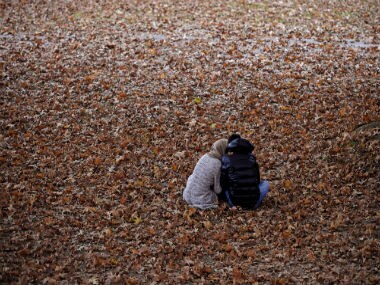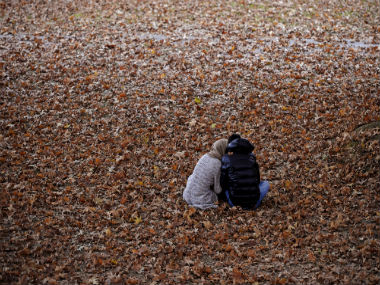If you only knew then what you know now, it might have saved you some awkwardness in the sex department! Of course, experience is a wonderful teacher. But there are some things you should have been taught in a proper sex-ed class. On National Education Day, as politicians and educators debate whether this country needs sex education — as suggested by the 2019 draft national education policy — we asked 20-somethings to share things that they wish they had known sooner. [caption id=“attachment_7633931” align=“alignleft” width=“380”]  Representational image. Image source: Getty Images.[/caption]
Penile-vaginal penetration is just one of the ways people can have sex.
Heteronormative sex (penis goes into the vagina) is just one way to have sex - and even this has dozens of positions for couples to experiment with. Anal sex, oral sex (blow jobs and cunnilingus), fingering, genital rubbing, manual masturbation, mutual masturbation are all legit, too. As is refraining from sex altogether for people who identify as asexual - remember the “A” in LGBTQIA?
Sex isn’t like pornography. And courtship is nothing like the movies.
The actual sex act lasts around 5 minutes. And the mood or scene is only as sexy as you make it. Though watching pornography is not unhealthy in itself, it can be unhealthy to peg expectations on unrealistic depictions of sex. The movies are probably the worst places to learn about courting and relationships - several flout basic principles of consent and mutual respect!
Consent can be withdrawn at any time. Literally, at any time.
In 2017, Kaitlin Prest — the director and host of The Heart podcast — did an audio series on consent. Evocatively titled “No”, the four-part series navigated difficult situations in the bedroom where one of the partners felt unable to say no. The reasons varied from not wanting to hurt someone’s feelings, to being confused about what the person wanted at that moment. Any good sex educator — or even friend — will tell you that it’s okay to say no. Even if you’re just confused. Even if it is in the middle of intercourse. Even if you were the initiator. Consent needs to be vocalised; if someone simply goes along with it, it is not consent. Similarly, consent can be withdrawn verbally. At any time. In fact, consent is a part of the curriculum outlined in the 2019 draft education policy.
There are many wrong ways to put on a condom. Read the directions, you’ll be safer.
For the male version, gently roll the foreskin back to avoid injuries during sex. (Remember to roll the foreskin back to its original position after sex.) Open the packet, place the condom on the head of the penis and gently roll it back. Over time, try a few different sizes to find your best fit. Keep in mind that two condoms are worse than one: they can tear, or come off during sex and leave you unprotected. So don’t “double-bag” it. However, do use a new condom each time - even if you’re resuming the act after a brief gap. Condoms have a 98% success rate at preventing pregnancies and can protect you from sexually-transmitted diseases. Female condoms have a higher failure rate on average than male condoms - usually, this is because of improper use of the condoms. To put it on, push one of the two “rings” of the condom into the vagina with your index finger (don’t force it or twist it).
STDs can spread through oral sex. Use a condom.
It’s important to use a condom even during oral sex. According to the US Centres for Disease Control, sexually-transmitted diseases like chlamydia, gonorrhoea, human papillomavirus (HPV), syphilis, trichomoniasis and HIV can spread through oral sex. The chances of HIV transmission through oral sex are low, but not non-existent.
Contraceptives prevent pregnancies, but they don’t protect you from STDs.
For sexually active teens, pregnancy can be a big fear factor. But we know as grown-ups that STDs can be equally — if not more — worrisome. (Indian laws allow abortion till 20 weeks, and even beyond that in some cases. Minors have to be accompanied by a guardian.) Condoms offer protection against both.
A little bit of pain during sex is okay your first few times, but if it persists, you can seek medical help.
Dyspareunia, or pain during sex, is a medical condition with tried-and-tested therapies in Western medicine. Your doctor could also advise you on positions that may cause you less pain.
Pulling out doesn’t prevent pregnancies. Neither does having sex according to your ovulation cycle.
Precum can make you pregnant. And there is no way to guarantee you won’t conceive on specific days in your monthly cycle. And while we’re on the subject of unintended pregnancies, women who’ve just given birth can start ovulating within a month. Additionally, the morning-after pill to prevent pregnancy can be taken up to 72 hours after having unprotected sex. Though doctors recommend limiting its use to the absolute minimum because the pill contains hormones that can throw your natural cycle out of balance for a short while.
Sex may give you a urinary tract infection.
Girls should pee before and immediately after sex. Boys should wait at least 15 minutes after sex to urinate - this is because the semen gland is open immediately after sex and the pee can flow back into the prostate.
HIV is just one infection. There are at least 20 known STDs!
STDs can be caused by a virus, bacteria or a pathogen. Some, like chlamydia, syphilis and gonorrhoea (both caused by bacteria) are treatable. Others, like HIV, HPV and herpes can be managed but they don’t have a cure currently. Health articles in Firstpost are written by myUpchar.com, India’s first and biggest resource for verified medical information. At myUpchar, researchers and journalists work with doctors to bring you information on all things health. For more information, please read our article on Sexually Transmitted Diseases_._


)

)
)
)
)
)
)
)
)



